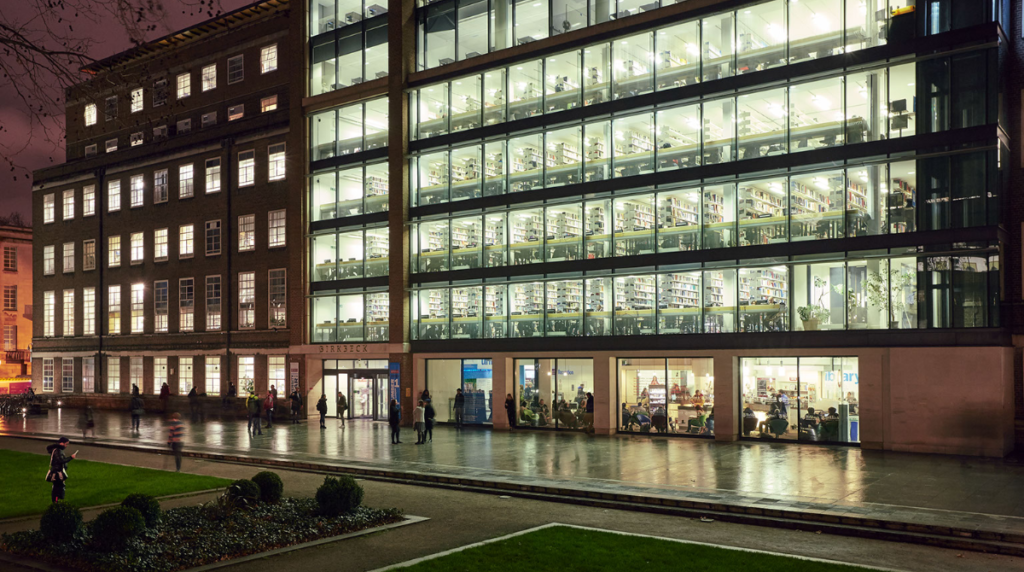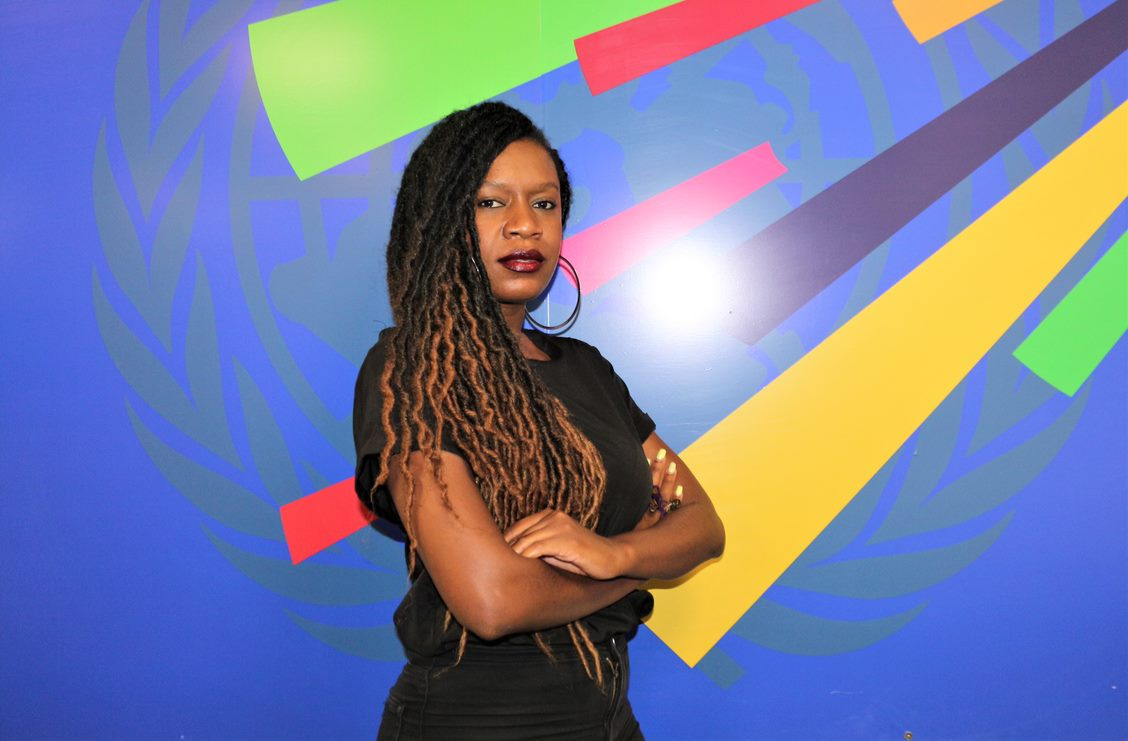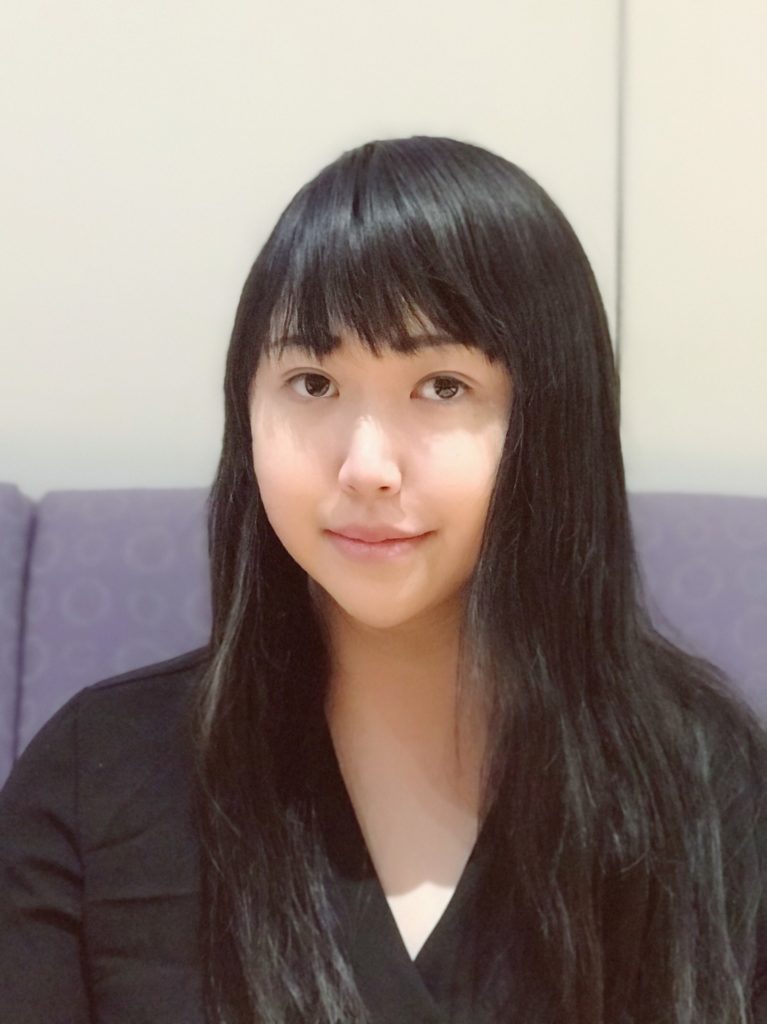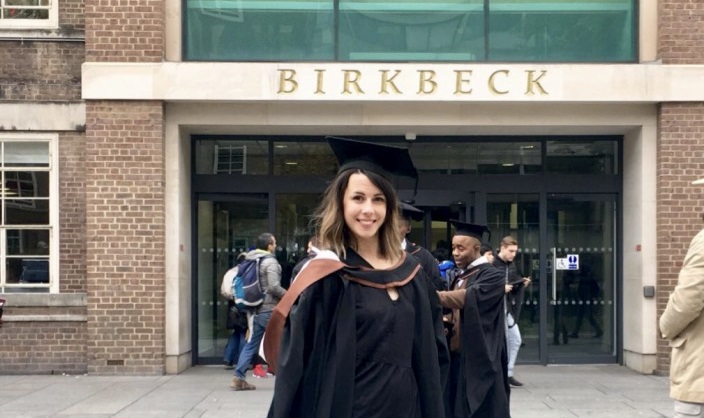Jenna Davies, Birkbeck’s Enterprise and Employability Consultant, encourages students to keep their cameras on whilst attending online lectures or seminars by outlining the benefits and addressing the most common barriers.

Among the various changes that 2020 has brought – our ways of working, studying, even socialising – there is one piece of equipment that has enabled us to retain our connection to others: our cameras.
While we have been unable to physically meet and see our colleagues and peers, we are fortunate to have the opportunity to maintain a level of connection through our screens, be it our phones, iPads, laptops or computers. In our online lectures and seminars, we can replicate the classroom as best as possible through the technology that we are able to access, providing a unique experience in a challenging environment where everyone can benefit from the virtual teaching space.
However, there are a number of barriers that may prevent us from fully embracing the online learning environment; to switch our cameras on, use our microphones to speak up, and be as present as possible, as we would in person. We may not feel comfortable being on video in front of our tutors and peers, we may have distractions in the background that we don’t want to risk interrupting the sessions, or we may feel we can still get the same from the session by not being on video. To overcome these challenges and reap the benefits of having our videos on in our online lectures and seminars, there are things we can do to make sure that we maximise our learning.
“I’m not comfortable being on video in front of my tutors and peers”
The transition to remote studying and working this year has meant that our home and work/study life are much more intertwined. Our homes are our study spaces – and although it’s only our head and shoulders in shot, we may feel more exposed on video compared to in-person.
Consider how you feel when you see someone on video in an online lecture, or meeting for example. Often, we’ll feel more of a connection to that person because we can see them. If we’re in an online meeting with three other people, two of whom have their videos on and one doesn’t, we feel less of a rapport with the person we can’t see.
If we have our videos off, we may be impacting the connection that others have with us and their experience in the virtual learning space as well. Birkbeck’s Disability Service Manager, Mark Pimm, recently reflected on his experience in virtual meetings: “I’m blind, and I have become so conscious of how much I miss out on being able to see everyone in the virtual meeting. This has made me wonder if when you leave the camera turned off in your online lectures and seminars, whether your fellow students are missing out on you.”
If everyone in our online lectures embraces the virtual space and switches their videos on, we’ll feel more connected to our peers and tutors. We’ll be more engaged and avoid potential distractions because we will be more present in that space. This will positively impact our experience and the goals we may have set when we enrolled onto our courses – to learn, to meet new people, to progress our careers, to graduate.
“I have distractions in the background that could interrupt the sessions”
There will often be occasions when we can’t avoid interruptions while we’re online – we may have children to look after, someone might be at the door, we might not want to show the space around us on video. The resistance to be on screen can come from a number of reasons.
If we consider how we feel when we have seen someone else on-screen experience interruptions during a lesson or a meeting, often there isn’t an impact on the session for others. We have all become far more understanding of what it means to study and work from home, and this comes with the acceptance that people will be in different spaces and have things going on in their homes that they can’t control.
If a distracting background is the difference between turning our videos on in lectures and making the most of the lesson, having a screen behind you may be a useful option. This could be a room divider or something in the home that you can use as your background.
“I’m not sure how I should position my camera”
Whichever device you use for your online sessions, try to have your head and shoulders in the shot. This will ensure that you fill the ‘frame’ without being too close or too far away from the camera.
Aim to have your device’s camera at the same height as your head, which will help to avoid looking down at the camera lens and it will also ensure that your posture is in a good position.
There are some useful tips in this video about setting up your cameras and making more impact on video.
“I’m still getting the same level of teaching with my video off”
There are numerous benefits of being part of a group and studying alongside peers who share the same interest in the topic you’re studying. While we have transitioned from physical classrooms to virtual classrooms, this doesn’t mean that those connections with your peers should disappear.
Being able to learn from your tutors as well as your fellow students is hugely beneficial and enhances your learning experience. The more engaged and present you are in your online sessions, with your videos on and speaking up to contribute to discussions, the more you will benefit from the session.
As we continue into the academic year, embrace the virtual learning environment and the opportunity to connect with your peers and tutors by making use of the technology we have, to benefit your studies as well as your peers’.






 Sophie DeFries, Bio-business alumna: I obtained my BSc from St Andrews in Cell/Molecular Biology then went on to receive an MSc from London School of Hygiene and Tropical Medicine in Medical Microbiology. My post-university work experience has been in market research and consulting in the healthcare industry. I began at a market research agency in the oncology business unit solving pharmaceutical client brand strategy needs. Currently, I work for a marketing and sales management consultancy where client projects have a wide scope of therapy areas, drugs, and business objectives.
Sophie DeFries, Bio-business alumna: I obtained my BSc from St Andrews in Cell/Molecular Biology then went on to receive an MSc from London School of Hygiene and Tropical Medicine in Medical Microbiology. My post-university work experience has been in market research and consulting in the healthcare industry. I began at a market research agency in the oncology business unit solving pharmaceutical client brand strategy needs. Currently, I work for a marketing and sales management consultancy where client projects have a wide scope of therapy areas, drugs, and business objectives. Alba Ruzafa Martín, Bio-business student: I studied Biology back home in Madrid and after working in a lab for one year I decided that “lab-life” wasn’t for me. Then I decided that industry would be an interesting path to follow, so I started to look for a master’s and I found Bio-business at Birkbeck. For me, it was the perfect option. Not only because of the modules on offer but also because I needed (and still do need) to work full time.
Alba Ruzafa Martín, Bio-business student: I studied Biology back home in Madrid and after working in a lab for one year I decided that “lab-life” wasn’t for me. Then I decided that industry would be an interesting path to follow, so I started to look for a master’s and I found Bio-business at Birkbeck. For me, it was the perfect option. Not only because of the modules on offer but also because I needed (and still do need) to work full time. Igor Smyriov, Bio-business alumnus: I had been looking for a master’s degree in business with a focus on biotech and life science for more than two years before I found the MSc Bio-business at Birkbeck. It had everything I was looking for: the option to study part-time in the evening, the central London location, and a huge variety of modules to study.
Igor Smyriov, Bio-business alumnus: I had been looking for a master’s degree in business with a focus on biotech and life science for more than two years before I found the MSc Bio-business at Birkbeck. It had everything I was looking for: the option to study part-time in the evening, the central London location, and a huge variety of modules to study. Romina Durigon, Bio-business student: I was drawn to Bio-business by the desire to gain a deeper knowledge of the biotech and pharma sectors while networking and connecting with some of the most important companies and not-for-profit organisations in the UK.
Romina Durigon, Bio-business student: I was drawn to Bio-business by the desire to gain a deeper knowledge of the biotech and pharma sectors while networking and connecting with some of the most important companies and not-for-profit organisations in the UK.


